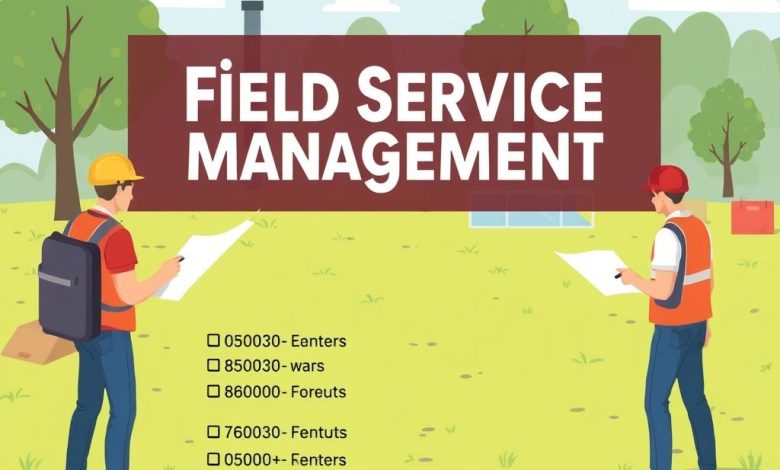Field Service Management with Business Hours Rules Optimizing Scheduling and Operations

Introduction
Field Service Management (FSM) is a critical component of many businesses, particularly those in industries such as HVAC, electrical work, plumbing, and home maintenance. It involves managing and coordinating the activities of field technicians who provide services directly to customers at their locations. In today’s fast-paced business environment, efficient FSM is crucial for maintaining customer satisfaction, reducing operational costs, and increasing overall productivity.
One key aspect of effective FSM is implementing and adhering to business hours rules. These rules dictate when and how field technicians operate within specific time constraints. This article will explore the importance of business hours rules in FSM, their impact on scheduling optimization, and best practices for implementation.
The Role of Business Hours Rules in Field Service Management
Business hours rules are essential components of any successful FSM system. They define the operating hours during which field technicians are available to perform services. These rules typically include:
• Start and end times for each day of the week
• Break periods between jobs
• Time windows for accepting new appointments
• Overtime policies and associated rates
Implementing strict business hours rules helps ensure consistency across all operations, maintains high-quality service standards, and protects both the company and its employees from potential legal issues related to overwork or underpayment.
Benefits of Adhering to Business Hours Rules
- Improved Customer Satisfaction
By adhering to set business hours, companies can better manage customer expectations regarding appointment availability and service completion times. This leads to increased customer satisfaction and loyalty. - Enhanced Operational Efficiency
Well-defined business hours allow for more accurate scheduling and resource allocation. This results in reduced wait times for customers and improved overall operational efficiency. - Legal Compliance
Strict adherence to business hours rules helps companies comply with labor laws and regulations, protecting them from potential legal issues and penalties. - Cost Reduction
By optimizing schedules based on business hours rules, companies can reduce overtime expenses and minimize unnecessary travel time for technicians.
Impact on Scheduling Optimization
Scheduling optimization is a critical aspect of FSM, and business hours rules play a significant role in this process. Effective scheduling ensures that the right technician is assigned to the right job at the right time, maximizing efficiency while minimizing costs.
Challenges in Scheduling Optimization
- Technician Availability
Ensuring that enough qualified technicians are available during peak hours can be challenging, especially in regions with limited workforce pools. - Job Complexity
Different types of jobs may require varying levels of expertise, necessitating careful consideration of technician skills when assigning tasks. - Customer Preferences
Customers often have preferred appointment times, which must be balanced against business hours rules and technician availability. - Dynamic Nature of Workload
The nature of field service work means that unexpected issues can arise, requiring flexible scheduling to accommodate urgent requests.
Strategies for Overcoming Scheduling Challenges
- Advanced Scheduling Systems
Implement sophisticated scheduling software that takes into account business hours rules, technician availability, job complexity, and customer preferences. - Flexible Scheduling Models
Consider adopting models like round-robin scheduling or genetic algorithms to optimize technician assignments and minimize travel distances. - Real-time Monitoring
Utilize real-time monitoring tools to track technician locations and adjust schedules dynamically based on changing workloads. - Cross-training Programs
Implement cross-training programs to increase the versatility of technicians, allowing for better job allocation based on available skills.
Best Practices for Implementing Business Hours Rules
To ensure the effective implementation of business hours rules in FSM systems, consider the following best practices:
- Clearly Define Operating Hours
Establish clear and consistent operating hours for all locations and services offered. - Communicate Rules to All Stakeholders
Ensure that all employees, customers, and partners understand and adhere to the established business hours rules. - Regularly Review and Update Rules
Periodically review and update business hours rules to reflect changes in market demands, operational needs, or regulatory requirements. - Integrate with Scheduling Systems
Seamlessly integrate business hours rules into scheduling software to automate the process of creating optimized schedules. - Provide Flexibility Where Possible
While maintaining core business hours, consider offering extended hours for emergency services or high-demand periods.
Conclusion
Implementing and adhering to business hours rules is crucial for successful Field Service Management. These rules provide structure and consistency to operations, leading to improved customer satisfaction, enhanced operational efficiency, legal compliance, and cost reduction. By understanding the challenges in scheduling optimization and implementing strategies like advanced scheduling systems, flexible scheduling models, real-time monitoring, and cross-training programs, businesses can overcome common obstacles in FSM.
As the field service industry continues to evolve, it’s essential for managers to stay informed about new technologies and best practices in FSM. By leveraging these tools and techniques, companies can optimize their operations within the constraints of business hours rules, ultimately leading to increased profitability and competitiveness in the market.




